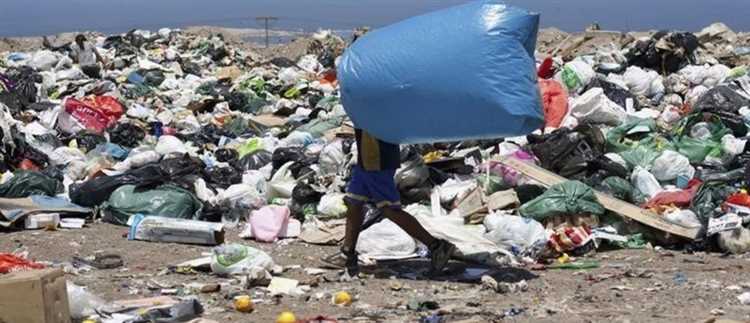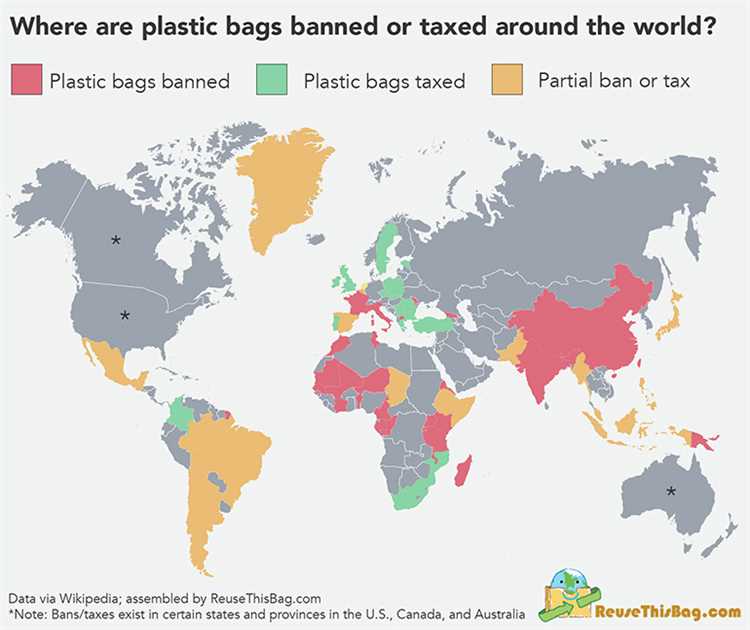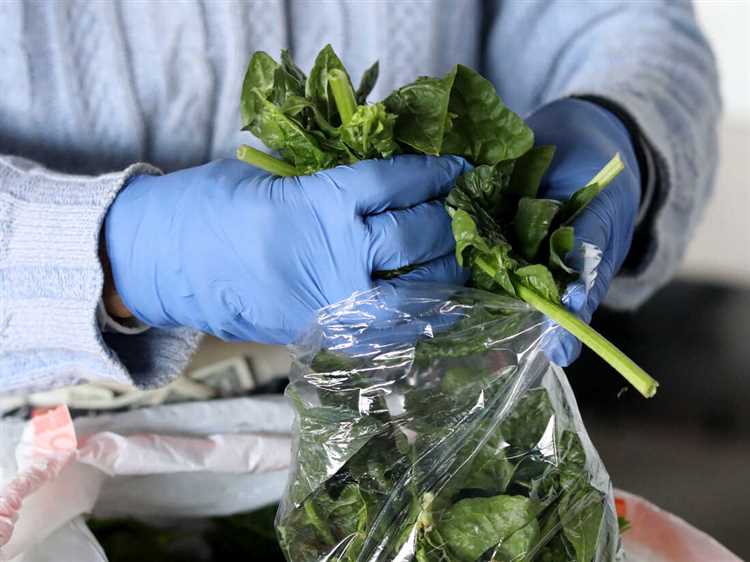Plastic bags have become a global environmental issue due to their harmful impact on ecosystems and marine life. However, did you know which country took the pioneering step of being the first to ban plastic bags?
Rwanda, a small landlocked country in East Africa, holds the honor of being the first country in the world to ban plastic bags. In 2008, Rwanda implemented a complete ban on single-use plastic bags, making it illegal to manufacture, import, use, or sell them. This bold and progressive move by Rwanda has set an example for other nations to follow in the fight against plastic pollution.
The decision to ban plastic bags in Rwanda was not made overnight. It was a result of years of environmental awareness campaigns and efforts to address the growing problem of plastic waste. The government of Rwanda recognized the urgent need to protect its fragile environment and took decisive action to reduce the consumption of plastic bags.
The ban on plastic bags in Rwanda has had a significant positive impact on the environment. It has helped reduce pollution, protected wildlife, and improved the overall cleanliness of the country. Other countries, inspired by Rwanda’s success, have since followed suit and implemented their own bans on plastic bags.
- The Pioneer in Banning Plastic Bags
- Impact of Plastic Bags
- Environmental Impact
- Human Health Impact
- The First Country to Take a Stand
- Impact of the Ban
- Inspiring Change
- Implementation and Success
- Challenges and Lessons Learned
- The Global Impact
- Q&A:
- Which country was the first to ban plastic bags?
- When did Bangladesh ban plastic bags?
- What was the reason for Bangladesh to ban plastic bags?
- Which countries have followed Bangladesh’s example and banned plastic bags?
- What are some alternatives to plastic bags?
- Which country was the first to ban plastic bags?
The Pioneer in Banning Plastic Bags
The decision to ban plastic bags in Bangladesh was driven by the urgent need to address the environmental and social impacts caused by their widespread use. Plastic bags were clogging drains and canals, contributing to devastating floods during the monsoon season. They were also blocking sewers and creating breeding grounds for mosquitos, leading to the spread of diseases such as dengue fever.
The ban on plastic bags in Bangladesh was not without its challenges. The country faced resistance from manufacturers and retailers who relied on the cheap and convenient nature of plastic bags. However, the government remained steadfast in its commitment to protecting the environment and public health.
As a result, the ban on plastic bags in Bangladesh has been remarkably successful. The use of plastic bags has significantly decreased, and the country has seen a reduction in plastic pollution in its waterways, streets, and countryside. The ban has also encouraged the use of alternative materials such as jute bags, which are biodegradable and have a smaller environmental footprint.
The success of Bangladesh’s ban on plastic bags has inspired other countries to take similar action. Today, more than 60 countries have implemented some form of restriction or ban on plastic bags. Bangladesh’s pioneering efforts have shown the world that it is possible to make a lasting impact on plastic pollution and promote sustainable practices.
While there is still much work to be done to combat plastic waste globally, Bangladesh’s ban on plastic bags serves as a reminder of the power of innovative solutions and the importance of taking proactive steps towards a cleaner and greener future.
Impact of Plastic Bags

Plastic bags have had a profound impact on the environment and on human health. Although they are durable, convenient, and inexpensive, they have become a major environmental concern due to their long lifespan and non-biodegradable nature.
Environmental Impact
Plastic bags contribute to pollution in various ways. They are made from non-renewable resources, primarily fossil fuels, which contribute to climate change. In addition, the manufacturing process for plastic bags releases harmful greenhouse gas emissions. Once in the environment, plastic bags can break down into microplastics, which can be ingested by marine life and enter the food chain. This poses a threat to ecosystems and biodiversity.
Plastic bags also have a negative impact on wildlife. Marine animals, such as turtles and seabirds, often mistake plastic bags for food and can suffer from internal injuries or even death from ingestion. Land animals can become entangled in plastic bags, leading to injuries or suffocation.
Human Health Impact
Plastic bags can indirectly impact human health through their effect on the environment. The release of greenhouse gases during their production contributes to air pollution, which can have negative effects on respiratory health. Additionally, when plastic bags break down into microplastics, they can contaminate water sources and enter the food chain, potentially exposing humans to harmful substances.
Studies have shown that some chemicals used in the production of plastic bags, such as bisphenol A (BPA) and phthalates, can leach into food or beverages when in contact with plastic bags. These chemicals have been linked to various health issues, including hormonal disruptions and developmental problems.
Furthermore, improper disposal of plastic bags can clog drainage systems, leading to flooding, which can have detrimental effects on communities and public health. Plastic bags can also contribute to litter, making urban areas look unsightly and negatively affecting tourism.
Given the significant negative impact of plastic bags, many countries and cities have implemented bans or taxes on plastic bags as a way to reduce their usage and encourage the adoption of more sustainable alternatives.
It is important for individuals to be aware of the environmental and health impacts of plastic bags and to make conscious choices to reduce their usage and properly dispose of them.
The First Country to Take a Stand
In the global fight against plastic pollution, one country stands out as a pioneer: Bangladesh. In 2002, Bangladesh became the first country in the world to ban plastic bags.
The decision to implement the ban was driven by the severe impact plastic bags were having on the environment, particularly in the country’s densely populated cities. The bags were clogging drains, leading to frequent flooding during the monsoon season, and causing harm to marine life when they entered the rivers and oceans.
The ban was not an easy task to undertake. Plastic bags were deeply ingrained in the daily lives of Bangladeshis, and there was initial skepticism about the effectiveness of the ban. However, through a combination of awareness campaigns, strict enforcement, and public engagement, the government succeeded in gradually phasing out the use of plastic bags.
Impact of the Ban
The ban on plastic bags in Bangladesh has had a significant impact on reducing plastic waste. In the years following the ban, the country witnessed a notable decrease in the use and production of plastic bags. This has not only helped in preserving the natural environment but has also improved the overall cleanliness and aesthetics of the cities.
Moreover, the ban has had positive effects on local industries. With the decline in plastic bags, alternatives such as jute and cloth bags gained popularity, providing new business opportunities for local manufacturers. This has also had a positive effect on employment rates and the economy.
Inspiring Change

Bangladesh’s success in being the first country to ban plastic bags has inspired other nations to take similar action. Today, many countries around the world, including China, France, and Italy, have implemented bans or restrictions on the use of plastic bags. These collective efforts are crucial in the global fight against plastic pollution and serve as a reminder of the power of individual actions and government policies in creating a sustainable future.
| Year | Country | Action Taken |
|---|---|---|
| 2002 | Bangladesh | Banned plastic bags |
| 2008 | China | Started phasing out plastic bags |
| 2016 | France | Banned plastic bags in supermarkets |
| 2021 | Italy | Banned single-use plastic bags |
Implementation and Success
The implementation of the plastic bag ban varied from country to country, but overall, it has been successful in reducing plastic waste and promoting more sustainable alternatives.
One country that stands out for its successful implementation is Rwanda. In 2008, Rwanda became the first country in the world to impose a complete ban on plastic bags. The government took a proactive approach and implemented strict regulations and enforcement measures.
Initially, there was some resistance from the public and businesses, as the ban meant a significant change in daily practices. However, the government worked closely with the citizens and provided education campaigns on the environmental impact of plastic bags. They also supported the transition to reusable bags by making them affordable and easily accessible.
The ban in Rwanda has resulted in a dramatic decrease in plastic bag usage. It has also led to a change in mindset, with people becoming more aware of the impact of their actions on the environment. The success of the ban in Rwanda has inspired other countries to follow suit and implement similar measures.
Challenges and Lessons Learned

Implementing a plastic bag ban is not without its challenges. One of the main challenges is the need for alternative packaging solutions. While reusable bags are a popular choice, there is also a need for biodegradable or compostable alternatives to plastic bags.
Another challenge is the enforcement of the ban. It requires collaboration between the government, businesses, and citizens to ensure compliance. Strict penalties for violating the ban can be effective, but education and awareness campaigns are also crucial.
The Global Impact

The success of the plastic bag ban in Rwanda and other countries has had a global impact. It has brought attention to the issue of plastic waste and spurred action in countries around the world.
Many countries have followed Rwanda’s example and implemented their own plastic bag bans or imposed taxes on plastic bags. This collective effort has led to a significant reduction in plastic bag usage globally and has contributed to a shift towards more sustainable practices.
The success of the plastic bag ban serves as a reminder of the importance of taking action to protect our environment. It shows that even small changes can have a profound impact on reducing plastic waste and creating a more sustainable future.
Q&A:
Which country was the first to ban plastic bags?
The first country to ban plastic bags was Bangladesh.
When did Bangladesh ban plastic bags?
Bangladesh banned plastic bags in 2002.
What was the reason for Bangladesh to ban plastic bags?
Bangladesh banned plastic bags to prevent drain blockage and reduce pollution.
Which countries have followed Bangladesh’s example and banned plastic bags?
Many countries have followed Bangladesh’s example and banned plastic bags, including Rwanda, Kenya, and New Zealand.
What are some alternatives to plastic bags?
Some alternatives to plastic bags include reusable cloth bags, paper bags, and biodegradable bags made from organic materials.
Which country was the first to ban plastic bags?
The first country to ban plastic bags was Bangladesh in 2002.